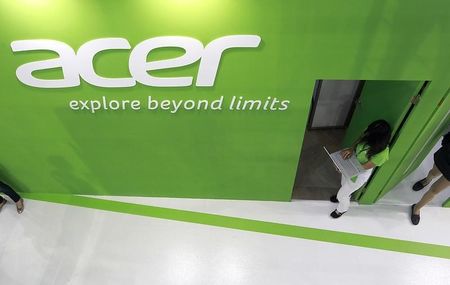By Sylvia Westall
BEIRUT (Reuters) - The growing power of the ultra-hardline Islamic State means the Syrian army is now having to confront a group it has until now been reluctant to attack for political reasons.
The emergence of the al Qaeda offshoot, formerly known as the Islamic State in Iraq and the Levant (ISIL), has so far allowed President Bashar al-Assad to present himself to the world as a bulwark against Sunni Islamist radicals.
At the same time, the group's tendency to fight more moderate rebel forces also helped to divide the opposition, making it easier for Assad's forces to recapture territory lost in earlier periods of Syria's civil war.
As a result, some analysts suspect army commanders pursued a twin-track strategy against ISIL - they have sought to reduce the group's threat to the state, while ensuring it remains strong enough to continue feuding with other rebels.
Now that Islamic State's fighters have gained momentum in Syria, boosted by equipment seized in a rapid offensive next door in Iraq, the army may need to become more confrontational with the group if it wants to avoid losing territory to it.
Last month Islamic State declared an "Islamic caliphate" in territory it controls in Iraq and Syria, and vowed to expand.
It has mainly advanced in Syria by capturing land from more moderate rebel fighters. But it is now clashing with the Syrian military more often, and the army has responded by stepping up aerial bombings on its positions.
In the short term, Damascus has not been too worried about ISIL, said a former Syrian diplomat who spoke on condition of anonymity.
"In the long-term though, it must be a matter of great concern because it makes it all the more difficult should ISIL establish itself semi-permanently, especially with its control of resources like the oil."
"There is a conflict of interests here between what is short-term and practical, and a long-term consideration," the former diplomat said.
GAS FIELD ATTACK
Last week, Islamic State killed 270 soldiers, guards and staff when it captured a gas field in central Syria, in the deadliest clash yet between the group and government forces, according to the Syrian Observatory for Human Rights, a group based in Britain which tracks the violence.
Syrian newspaper al-Watan, citing sources, said that around 60 members of the security forces were killed.
Syrian soldiers also fought Islamic State militants outside a government-controlled army airport in the east of the country last Friday, part of a major escalation of hostilities between the two groups.
The airport is one of the last major strategic locations in Deir al-Zor province which is not under the control of the Islamic State, and its capture would deny the Syrian army of its launch pad for air strikes on the east of the country.
If the Syrian government wants to take back control of territory in the north and east of the country, it will have to confront the Islamic State, observers say.
Made up of a few thousand fighters of various nationalities, the Islamic State lacks the firepower of the Syrian army. But it has been among the strongest of the armed groups, despite having little presence in Syria until two years ago.
Its fighters have also used non-military methods to make gains, such as encouraging ad hoc alliances, exploiting local grievances and buying off opposition fighters.
Anti-Assad activists and Western officials say the government has allowed Islamic State forces to flourish while attacking less extreme rebels.
Assad has used the group's rise to back his argument that Syria faces a militant Islamist threat, diplomats say.
"The government wants (Islamic State) to be strong enough for its propaganda purposes and is therefore hesitant to attack it," one Western diplomat said, adding that any government offensives were launched because Assad needed to be seen as acting against the group.
Although government forces have avoided attacking the group's convoys and confronting it on the ground unless it is necessary, that does not mean it has been ignored as an enemy, the Observatory's director Rami Abdurrahman said.
"Since June 10 until now, there have been air strikes on (Islamic State) areas every day," he said, adding that before then it was once every four to five days.
"When it becomes stronger, it is a danger for the Syrian regime. Where it is a little bit weaker and fights with other rebel fighters, it is good for the Syrian regime to have a rest and control the area," he said.
FLASHPOINTS
He said potential flashpoints between the army and Islamic State include Deir al-Zor province, areas around Raqqa city in central Syria, Aleppo in the northwest and eastern parts of the Hama province.
The Observatory, which relies on a network of contacts on the ground in Syria, estimates that Islamic State controls at least 35 percent of the country's territory.
Some insist Assad sees Islamic State purely as a foe.
Salem Zahran, a Lebanese analyst who is sympathetic to Assad and meets Syrian officials regularly, says Damascus views Islamic State as a threat like all Syria's other armed groups.
"The Syrian leadership ... does not differentiate (Islamic State) from the rest of the factions, and there is a danger from any faction that takes up arms," he said.
Islamic State is seen by Damascus as a danger on the ground even if it has helped to serve political objectives, said Jihad Makdissi, a former Syrian foreign ministry official who left the country and is now an independent political figure who backs the Geneva peace process for Syria.
"They see it absolutely as a threat to the country from a security and military stand point and they are already fighting them in many places according to the government's priorities."

But from a political perspective, Islamic State has served the Syrian government's objectives by demoralizing and demonising the opposition, he added.
(Additional reporting by Laila Bassam and Tom Perry; Editing by William Maclean and Giles Elgood)
